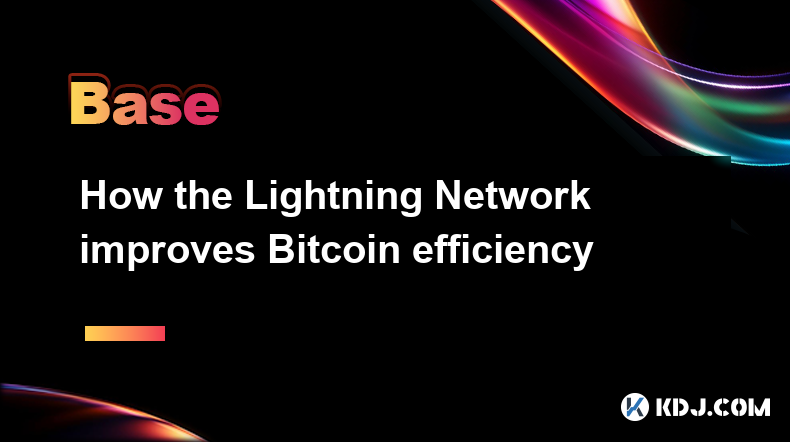-
 Bitcoin
Bitcoin $87,356.7866
2.55% -
 Ethereum
Ethereum $1,638.7142
1.49% -
 Tether USDt
Tether USDt $1.0000
0.00% -
 XRP
XRP $2.1170
1.59% -
 BNB
BNB $603.9416
1.60% -
 Solana
Solana $140.7449
-0.10% -
 USDC
USDC $1.0000
0.01% -
 Dogecoin
Dogecoin $0.1612
1.47% -
 TRON
TRON $0.2446
0.70% -
 Cardano
Cardano $0.6403
1.48% -
 Chainlink
Chainlink $13.5386
3.52% -
 UNUS SED LEO
UNUS SED LEO $9.4122
0.71% -
 Avalanche
Avalanche $19.9770
0.38% -
 Stellar
Stellar $0.2522
2.41% -
 Toncoin
Toncoin $3.0278
0.79% -
 Shiba Inu
Shiba Inu $0.0...01274
3.15% -
 Sui
Sui $2.2177
2.58% -
 Hedera
Hedera $0.1707
2.77% -
 Bitcoin Cash
Bitcoin Cash $338.7540
-0.36% -
 Polkadot
Polkadot $3.9033
-0.91% -
 Hyperliquid
Hyperliquid $18.1086
-1.54% -
 Litecoin
Litecoin $78.6965
2.64% -
 Bitget Token
Bitget Token $4.5466
-0.88% -
 Dai
Dai $0.9999
0.00% -
 Ethena USDe
Ethena USDe $0.9993
0.02% -
 Pi
Pi $0.6368
-2.12% -
 Monero
Monero $215.6237
-0.53% -
 Uniswap
Uniswap $5.4295
1.63% -
 Pepe
Pepe $0.0...07859
4.81% -
 Aptos
Aptos $5.1258
4.53%
What Is Anarcho-Capitalism?
Anarcho-capitalism advocates the complete abolishment of the state, believing it impedes economic progress and violates individual rights by advocating for a free market society based on voluntary cooperation.
Oct 17, 2024 at 10:30 am

What is Anarcho-Capitalism?
Anarcho-capitalism is a political philosophy that advocates the elimination of the state and the establishment of a society based on voluntary cooperation and free markets. Anarcho-capitalists believe that the state is an illegitimate institution that violates individual rights and impedes economic progress.
Key Principles of Anarcho-Capitalism
- Individual Liberty: Anarcho-capitalists believe that individuals have the absolute right to life, liberty, and property. They reject the concept of government authority and argue that individuals should be free to make their own choices and pursue their own interests without interference.
- Free Markets: Anarcho-capitalists advocate a free market economy based on voluntary transactions between individuals and businesses. They oppose government intervention, such as regulations, taxes, and subsidies, which they believe distort prices and reduce economic efficiency.
- Private Property: Anarcho-capitalists believe that private property is essential for individual freedom and economic prosperity. They argue that the right to own and control property is a fundamental human right and that government should not interfere with this right.
- Voluntary Cooperation: Anarcho-capitalists believe that human beings are naturally cooperative and that society can be organized without the need for a central authority. They argue that voluntary cooperation through organizations such as private arbitration services and community groups can provide the necessary services and protection for individuals.
Implementation of Anarcho-Capitalism
Anarcho-capitalists propose several methods for implementing their ideas:
- Secession: Some anarcho-capitalists advocate for the peaceful secession of regions from the state and the establishment of independent communities based on anarcho-capitalist principles.
- Gradual Transition: Others argue for a gradual transition from a state-controlled society to an anarcho-capitalist system, through the progressive reduction of government functions and the establishment of private institutions for security and other services.
Criticisms of Anarcho-Capitalism
Anarcho-capitalism has been criticized on several grounds:
- Lack of Security: Critics argue that the absence of a state would result in a breakdown of law and order and widespread chaos. They question the ability of private security forces to effectively protect individuals and property.
- Economic Instability: Some economists argue that the free market system advocated by anarcho-capitalists would lead to economic instability, such as boom-and-bust cycles and monopolies.
- Inequality: Critics claim that anarcho-capitalism would result in a society with extreme economic inequality, as those with access to capital would have a disproportionate amount of power compared to those who do not.
- Unrealistic Expectations: Some critics argue that anarcho-capitalism's fundamental assumption that human beings are naturally cooperative and rational is unrealistic in the real world.
Conclusion
Anarcho-capitalism remains a contentious political philosophy, with proponents and critics alike engaging in vigorous debates about its practicality and desirability. Despite the criticisms, it continues to attract adherents who believe that the abolition of the state and the establishment of a free market society based on individual liberty is the path to a more prosperous and equitable world.
Disclaimer:info@kdj.com
The information provided is not trading advice. kdj.com does not assume any responsibility for any investments made based on the information provided in this article. Cryptocurrencies are highly volatile and it is highly recommended that you invest with caution after thorough research!
If you believe that the content used on this website infringes your copyright, please contact us immediately (info@kdj.com) and we will delete it promptly.
- An Aptos community member submitted a proposal to slash staking rewards for the network's native token
- 2025-04-21 13:50:14
- The Ultimate Guide to BTFD Coin (BTFD): ROI Potential, Presale Stages, and More
- 2025-04-21 13:50:14
- TRON (TRX) Price Broke Above Descending Trendline Resistance Targeting $0.2800
- 2025-04-21 13:45:14
- VOXEL token price skyrockets by more than 50% after a BitGet malfunction causes the VOXE/USDT perpetual contract to surpass that of Bitcoin
- 2025-04-21 13:45:14
- Why Is Least Privilege Fundamental to Creating Safe Environments?
- 2025-04-21 13:40:14
- Top Crypto Gainers Today - JUP, WAVES, FXS, and DOT Are Outperforming the Market
- 2025-04-21 13:40:14
Related knowledge

The function of cross-chain bridges in blockchain
Apr 19,2025 at 10:01am
The function of cross-chain bridges in blockchain is a pivotal topic within the cryptocurrency ecosystem, as these tools enable the seamless transfer of assets and data across different blockchain networks. This article delves into the various aspects of cross-chain bridges, explaining their importance, how they work, and the benefits and challenges the...

How the Lightning Network improves Bitcoin efficiency
Apr 17,2025 at 08:56pm
The Lightning Network represents a significant advancement in the Bitcoin ecosystem, aiming to address some of the most pressing issues related to transaction speed and cost. By enabling off-chain transactions, the Lightning Network drastically improves Bitcoin's efficiency, allowing for faster and cheaper transactions. This article will explore how the...

Market value ranking basis in cryptocurrencies
Apr 20,2025 at 05:08am
The market value ranking in cryptocurrencies is a crucial metric that investors and enthusiasts use to gauge the relative size and importance of different digital assets. This ranking is primarily based on the total market capitalization of each cryptocurrency, which is calculated by multiplying the current price of a single unit of the cryptocurrency b...

What is the role of nodes in the blockchain
Apr 20,2025 at 03:29pm
The role of nodes in the blockchain is fundamental to the operation and integrity of the network. Nodes are the individual computers or devices that participate in the blockchain network. They play a critical role in maintaining the decentralized nature of blockchain technology, ensuring that transactions are verified, recorded, and distributed across t...

Analysis of the KYC process of cryptocurrency exchanges
Apr 17,2025 at 05:07pm
The Know Your Customer (KYC) process is a critical component in the operations of cryptocurrency exchanges. It serves as a regulatory measure to prevent fraud, money laundering, and other illicit activities. KYC procedures are designed to verify the identity of users and ensure compliance with financial regulations. This article delves into the various ...

The operating mechanism behind the stablecoin USDT
Apr 20,2025 at 08:08am
The stablecoin USDT, also known as Tether, is a cryptocurrency designed to maintain a stable value by pegging it to a reserve asset, typically the US dollar. Understanding the operating mechanism behind USDT is crucial for anyone interested in the cryptocurrency market, as it plays a significant role in trading and liquidity. This article will delve int...

The function of cross-chain bridges in blockchain
Apr 19,2025 at 10:01am
The function of cross-chain bridges in blockchain is a pivotal topic within the cryptocurrency ecosystem, as these tools enable the seamless transfer of assets and data across different blockchain networks. This article delves into the various aspects of cross-chain bridges, explaining their importance, how they work, and the benefits and challenges the...

How the Lightning Network improves Bitcoin efficiency
Apr 17,2025 at 08:56pm
The Lightning Network represents a significant advancement in the Bitcoin ecosystem, aiming to address some of the most pressing issues related to transaction speed and cost. By enabling off-chain transactions, the Lightning Network drastically improves Bitcoin's efficiency, allowing for faster and cheaper transactions. This article will explore how the...

Market value ranking basis in cryptocurrencies
Apr 20,2025 at 05:08am
The market value ranking in cryptocurrencies is a crucial metric that investors and enthusiasts use to gauge the relative size and importance of different digital assets. This ranking is primarily based on the total market capitalization of each cryptocurrency, which is calculated by multiplying the current price of a single unit of the cryptocurrency b...

What is the role of nodes in the blockchain
Apr 20,2025 at 03:29pm
The role of nodes in the blockchain is fundamental to the operation and integrity of the network. Nodes are the individual computers or devices that participate in the blockchain network. They play a critical role in maintaining the decentralized nature of blockchain technology, ensuring that transactions are verified, recorded, and distributed across t...

Analysis of the KYC process of cryptocurrency exchanges
Apr 17,2025 at 05:07pm
The Know Your Customer (KYC) process is a critical component in the operations of cryptocurrency exchanges. It serves as a regulatory measure to prevent fraud, money laundering, and other illicit activities. KYC procedures are designed to verify the identity of users and ensure compliance with financial regulations. This article delves into the various ...

The operating mechanism behind the stablecoin USDT
Apr 20,2025 at 08:08am
The stablecoin USDT, also known as Tether, is a cryptocurrency designed to maintain a stable value by pegging it to a reserve asset, typically the US dollar. Understanding the operating mechanism behind USDT is crucial for anyone interested in the cryptocurrency market, as it plays a significant role in trading and liquidity. This article will delve int...
See all articles






















































































